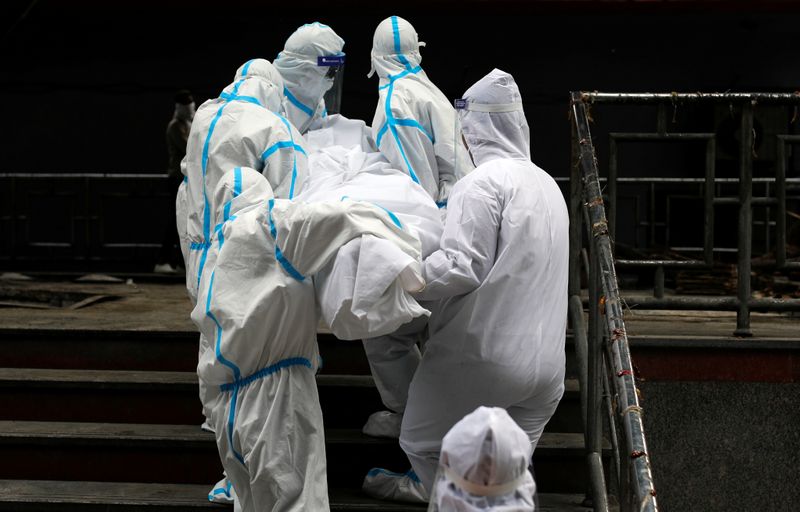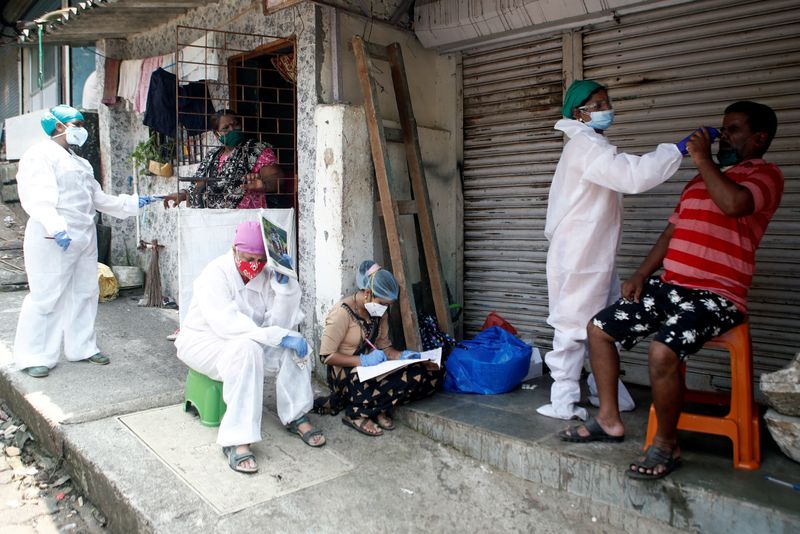By Shilpa Jamkhandikar
MUMBAI (Reuters) - India overtook Brazil in coronavirus infection numbers on Monday, making it second only to the United States after a record jump, but the government resumed underground train services and announced plans to re-open the Taj Mahal this month.
Prime Minister Narendra Modi's government, faced with a pandemic that is showing no sign of abating, has chosen to end most curbs in a bid to resuscitate an economy in deep trouble after a severe lockdown.
The world's second-most populous country posted more than 90,000 cases on Monday, taking its tally past 4.2 million, more than 68,000 ahead of Brazil, which will issue its latest figures later in the day.
At current rates, India could exceed the U.S. figure of 6.2 million by next month as the disease spreads from the big cities of Delhi and Mumbai to the vast hinterland where two-thirds of India's 1.3 billion people live, experts say.
"It's becoming a double burden now," Rajib Dasgupta, a professor of community health at Delhi's Jawaharlal Nehru University told Reuters.
"The urban areas are not slowing down, and rural areas are picking up."
India's death toll, however, stands at 71,642, far behind the nearly 193,000 dead in the United States and 126,000 in Brazil. The government says the high recovery rates show its strategy of testing, tracing and treatment is working.
Fighting the virus is straining medical facilities around the country. Doctors at Max Smart Super Speciality Hospital, with the largest private COVID-19 facilities in the Indian capital, say they are exhausted and facing staff shortages after nearly six months of relentless work.
There were few commuters as New Delhi resumed metro rail services after a break of more than six months, however.
"I am glad the metro has started. I used to have lot of problems traveling to work before this," Vijender, a passenger wearing a mask told Reuters partner ANI while traveling in an empty carriage.
Partial metro train services also opened in the western city of Ahmedabad, the northern city of Lucknow and several other places, after nearly six months of suspension over the pandemic.
The Taj Mahal, the world-famous tourist spot in the northern city of Agra, will reopen on Sept. 21, local authorities said, after its previously scheduled re-opening in July was postponed because of high infection numbers in the area.
Only 5,000 people will be allowed in each day, Vasant Swarnkar, an archeological officer said, compared to peak levels of 80,000 visitors who would swarm the 17th century mausoleum built by the Mughal emperor Shah Jahan for his wife.

(Interactive graphic tracking global spread of coronavirus: open https://tmsnrt.rs/3aIRuz7 in an external browser.)
